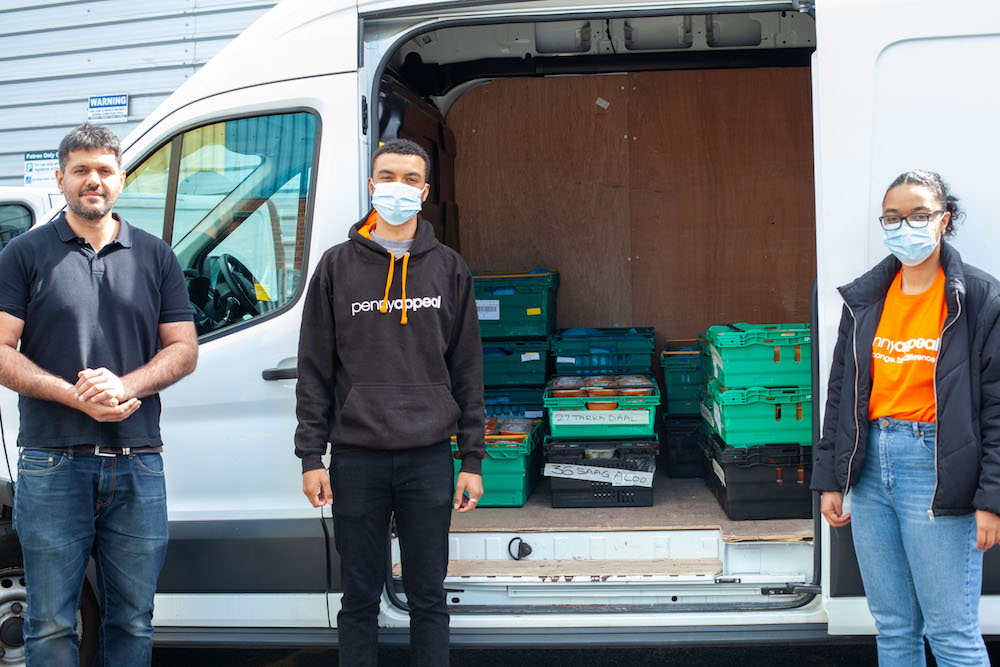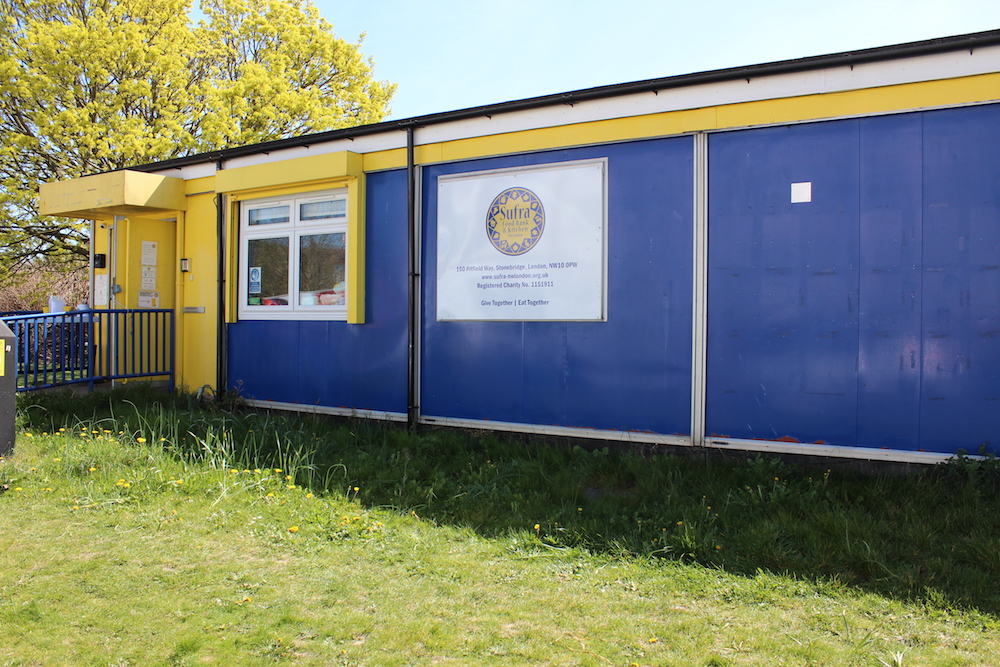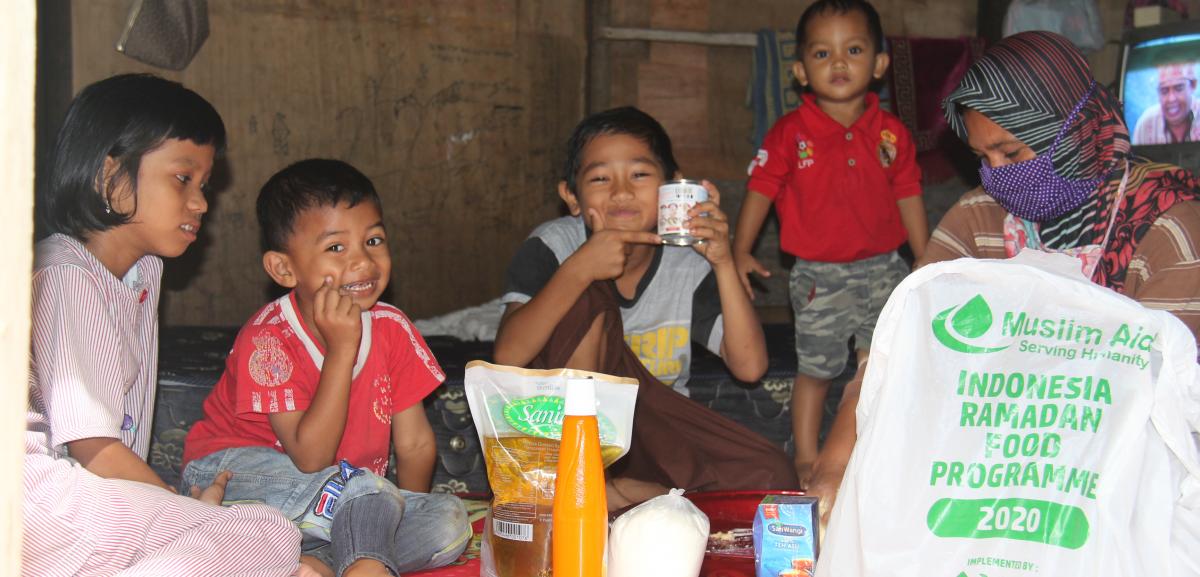LONDON: The coronavirus (COVID-19) pandemic has affected how people around the world are marking Ramadan, including how they are able to practice charitable giving, which is an important aspect of the holy month.
International charities in the UK have adjusted their fundraising initiatives because an increasing number in Britain are struggling to make ends meet.
“Ramadan this time looks very different for us,” Sarah Ashraf, community services manager at the international humanitarian charity Penny Appeal, told Arab News.
“We have seen a massive change as there are people who are on reduced hours, on furlough, or have lost their jobs. These people are struggling financially. There is a massive need out there and if I am being honest, we are only scratching the surface.”
Aside from international initiatives in more than 30 crisis-hit countries, the humanitarian organization runs programs in the UK throughout the year. Ramadan is usually a busy period. Before the pandemic, they would organize community iftars and Eid gatherings that brought families from different backgrounds together. But COVID-19 has presented more obstacles.
However, Penny Appeal has still managed to reach families in need, but in a safer way. It has partnered with community hubs and local grassroots organizations to bring the community together.

International humanitarian organization Penny Appeal distributed over 350 meals to Sufra in northwest London during Ramadan. (Photo/Charlene Edwards)
Targeting vulnerable and low-income families, homeless, refugees, asylum seekers, and those socially isolated, during Ramadan it has distributed 20,000 meals across the UK. Penny Appeal has also given out 1,000 supermarket vouchers and 1,000 food parcels that contain recipe cards for families to create their own meals.
“For Penny Appeal, Ramadan is so important because it is such a blessed month,” Ashraf said. “It is about togetherness, how much charity we can do within the blessed month and how much reward we can get from it.”
The humanitarian organization has also distributed 400 activity packs for children, which include games, along with arts and crafts.
“I think the amount of people that are accessing food banks has increased enormously and we cannot shy away from those figures,” said Ashraf, who also stated that Penny Appeal has plans to expand its UK programs.

Sufra in London supports thousands of disadvantaged families living in poverty with emergency food aid. (Photo/Sarah Glubb)
One of the local organizations they partnered with is Sufra, a northwest London charity that supports thousands of disadvantaged families living in poverty with emergency food aid.
Last Ramadan, Sufra distributed more than 1,700 parcels and 8,000 hot meals. This year’s operation has grown five times over to meet the growing demand. As a result, its target for the “Ramadan Love Thy Neighbor” campaign is significantly higher as it has expanded its services and is trying to attract more donations.
“We know a lot of people have been struck hard during COVID-19 and have not been able to donate financially, but this is a great opportunity to be able to do something once a year to help us continue doing our work,” Nirmean Sawi, programs and services manager at Sufra, told Arab News.
The charity also launched a “Ramadan Giving” calendar to get children into the habit of regularly donating one item per day to supplement the food bank.
Besides its Ramadan initiatives, Sufra also provides social therapeutic activities and support for refugees — predominantly from Syria — as they settle into new homes in the UK. But this Refugee Resettlement Program has also been restricted due to the pandemic.
Thanks to our amazing partners @BetaCharitable and your amazing support this #Ramadan we are almost half way to our target of £60k in our ‘Love Thy Neighbour’ appeal.
Your donations will support people like Hassan. To donate to our appeal https://t.co/ecs1HWBrTb pic.twitter.com/Ko86k4muKS
— Sufra NW London (@SufraNWLondon) April 27, 2021
Sawi said she expects the ban on landlords evicting tenants will end on May 31. That could potentially leave more than 750,000 families in the UK, who are already behind on their rent, out in the cold.
“There are those who have been struggling with their rent and could become homeless, so we are expecting even more people will need the food bank,” she said.
“Any support we receive through our ‘Love Thy Neighbor’ campaign will help us provide food. It will also make sure we have enough resources, staff, and volunteers to be able to do this work properly.”
The furlough scheme in the UK is set to expire in September, “so we are always anticipating that a lot more families are going to be struck hard over the next year or maybe longer,” Sawi said.
Penny Appeal also partnered with a local cake specialist in north London to launch a brand new range of Middle Eastern-inspired Eid cupcakes toward the end of Ramadan “where the spirit of community giving is high.”
Lola’s Bakery will release a baklava cupcake, a rose buttercream and almond flake cupcake and a baklava layer cake, committing to donating 5 percent of their sales to Penny Appeal.

Lola’s Bakery will release Eid cupcakes, committing to donating 5 percent of their sales to Penny Appeal. (Supplied)
Muslim Aid, the second oldest Muslim charity in the country, continued its campaigns through the pandemic and is expected to launch several more domestic programs. Its food drive distributed more than 35,000 meals in December and January alone.
“Predominantly, our work is still very much as an international non-governmental organization, but there is definitely a focus on connecting the work that we do abroad with the needs of some of the communities in the UK,” Muslim Aid CEO Kashif Shabir told Arab News.
He said his organization also launched a “UK Eid Gifts” initiative this year and has partnered with Great Ormond Street Hospital, along with several other hospitals in London and the Midlands, to distribute gifts to children.

Through Muslim Aid’s ‘Feed the Fasting’ campaign you can feed a family of five in a war- or disaster-stricken country for an entire month for £60. (Muslim Aid)
“We want to give them a feeling of Eid and Ramadan while they are in the hospital receiving treatment,” Shabir said.
Muslim Aid, which started during the African famine in the 1980s, also launched Zakat guidelines to provide transparency and clarity. Zakat, one of the five pillars of Islam, is the charitable donation that Muslims give away each year.
Another initiative for the charity is the annual “Feed the Fasting” campaign and is already in full swing. This campaign asks donors to contribute a minimum of £60 ($73), which goes toward feeding a family of five in a war- or disaster-stricken country for an entire month.
“The COVID-19 pandemic has made the logistics and the need of that campaign much more important this year,” Shabir said. “The UN expects an extra 130 million more people are going to suffer from some sort of food shortage this year.”







































